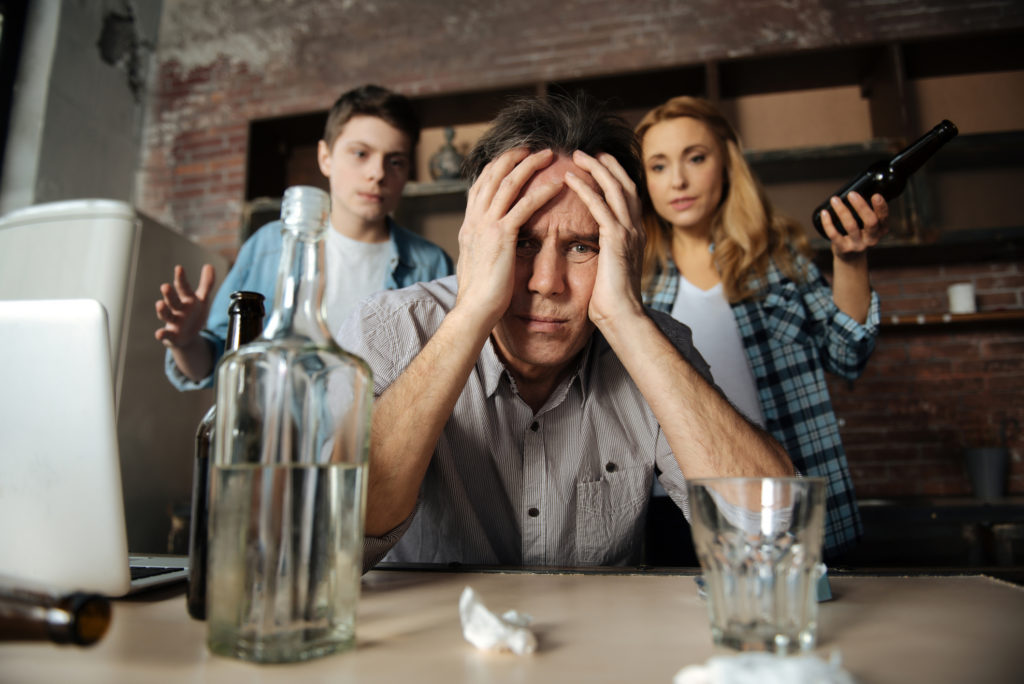Alcohol withdrawal can be a painful, distressing time. In some cases, it can be unsafe—potentially even life-threatening—to go through it at home. However, many people want to have this option, especially if they are unlikely to experience severe alcohol withdrawal. We have gathered together some of the best tips for alcohol withdrawal treatment at home but still feel it is important to remind you that the best, safest option for any withdrawal period is to seek professional help. At La Fuente, we offer safe, 24-hour care for individuals going through withdrawal and/or addiction treatment. Our facility is also LGBTQ-affirmative and welcomes individuals from all different backgrounds and walks of life. Allowing our patients to feel safe and protected is key at La Fuente.
What Does Alcohol Withdrawal Entail?
 According to the National Library of Medicine, alcohol withdrawal is a series of symptoms that occur when an individual who is dependent on alcohol suddenly stops drinking. The body has become reliant on the effects of the substance—just like with any addictive drug—and mild to severe physical and psychological symptoms may occur. The main symptoms associated with alcohol withdrawal are listed below:
According to the National Library of Medicine, alcohol withdrawal is a series of symptoms that occur when an individual who is dependent on alcohol suddenly stops drinking. The body has become reliant on the effects of the substance—just like with any addictive drug—and mild to severe physical and psychological symptoms may occur. The main symptoms associated with alcohol withdrawal are listed below:
- Depression
- Anxiety
- Confusion
- Irritability
- Fatigue
- Nightmares
- Insomnia
- Mood swings
- Shaking of the hands
All of these symptoms are extremely common issues associated with alcohol withdrawal. In addition, a person may experience an extremely fast heartbeat, appetite loss, headaches, clammy and pale skin, nausea, and mild to moderate tremors.
What Are the Possible Risks of Alcohol Withdrawal?
Unfortunately, there are many risks associated with alcohol withdrawal. Unlike some other drugs, which can cause mild withdrawal symptoms apart from cravings, alcohol withdrawal can potentially cause severe, life-threatening symptoms. This group of symptoms is often referred to as delirium tremens, and it is a health emergency (NLM). Symptoms associated with delirium tremens include: 
- Hallucinations
- Fear
- Delirium
- Stupor
- Sensitivity to certain senses
- Whole-body tremors
- Restlessness
- Seizures
Those who have been drinking heavily for at least 10 years, have experienced delirium tremens before or have been through alcohol withdrawal before, have an infection or illness, or have an injury (especially to the head) are more likely to experience this withdrawal syndrome. The heavier you have been drinking, the more likely it is to occur as well. If you think there is any possibility that you might undergo delirium tremens, it is in your best interest to seek professional detox for alcohol withdrawal.
Tips for Alcohol Withdrawal at Home
Many people prefer to go through alcohol withdrawal at home in the comfort of their own beds and with their loved ones. We understand this desire and want to do everything we can to help you and those you love through this difficult time. Here are our best tips for your safe withdrawal from alcohol at home.
Stay Hydrated
Making sure you don’t get dehydrated is number one on the list. Many people forget to drink water because they are feeling so low, and getting dehydrated during withdrawal can turn the situation into an emergency. Therefore, you’re going to want to drink water as much as possible. This will also help you flush out your system.
Eat Healthy
Eating heathy foods instead of junk will also keep your head above water. It will provide you with more energy and make it easier for you to cope with your symptoms. You may not be very hungry during this period, but remember food is fuel that will help your body get through this. In addition, you may want to add drinks that are high in electrolytes to your diet.
Rest, rest, rest…
Alcohol withdrawal is hard, tiring work. You’re not going to be able to go to work or school during this time, as you will feel sick and devoid of energy. Avoiding these day-to-day responsibilities will also allow you to stay focused on your needs and symptoms and recognize if they start to change. Resting with brief periods of low-impact exercise, such as walking or yoga, will help you get through your withdrawal safely.
Use Distraction Techniques
You’re likely to feel uncomfortable, shaky, and even pain from time to time as you attempt to end your dependence on alcohol. A good way to deal with these issues is through distraction. Involve yourself in low-key activities that feel good, such as yoga or tai chi. Meditation is also a great distraction tool that helps minimize the issue of cravings through mindfulness. Many studies have even been done on the subject of meditation for addiction recovery. Finally, a lukewarm bath or shower can sometimes be all you need to help you feel more relaxed and stable as well as to get your mind off the symptoms you’re experiencing. Make sure you don’t make the water too hot or too cold, though!
Ask for Help
It is best to avoid going through alcohol withdrawal on your own. This is because your symptoms could change and become severe without warning. According to the Better Health Channel, seizures and delirium tremens usually start to occur within the first two to four days of withdrawal. However, these symptoms are unpredictable and extremely dangerous. You will need to have someone you can trust at your side as you go through alcohol withdrawal, if only just to get you help if your symptoms worsen.
Remove Alcohol from Your Control
It is best to remove all the alcohol from your control before going through withdrawal. After all, you will start to experience cravings as the symptoms persist. Some schools of thought believe it is best to taper off one’s alcohol use to avoid going cold turkey and potentially experiencing severe withdrawal symptoms. However, this requires careful, measured administration, and you should not ask yourself to manage this without help.
Alcohol Detox
In an alcohol detox program, you can safely withdraw from alcohol under the care of medical professionals and with the help of medication. These individuals will know what to do if and when severe symptoms do occur. There are inpatient and outpatient alcohol detox programs, and depending on the severity of your symptoms, one of these is usually the safest bet for this withdrawal syndrome.
Seeking Safe, Professional Treatment for Alcohol Withdrawal
 Alcohol withdrawal is more dangerous than almost any other withdrawal syndrome. This is why we recommend alcohol detox followed by alcohol addiction treatment. Those who withdraw at home are also less likely to seek addiction treatment as well, which can cause relapse down the road. We want to offer you the opportunity to safely withdraw from alcohol abuse in a loving and supportive environment that also offers professional care. Remember, alcohol withdrawal is no joke, and the safest way to get through it is in a professional treatment program like ours. [kkstarratings]
Alcohol withdrawal is more dangerous than almost any other withdrawal syndrome. This is why we recommend alcohol detox followed by alcohol addiction treatment. Those who withdraw at home are also less likely to seek addiction treatment as well, which can cause relapse down the road. We want to offer you the opportunity to safely withdraw from alcohol abuse in a loving and supportive environment that also offers professional care. Remember, alcohol withdrawal is no joke, and the safest way to get through it is in a professional treatment program like ours. [kkstarratings]




